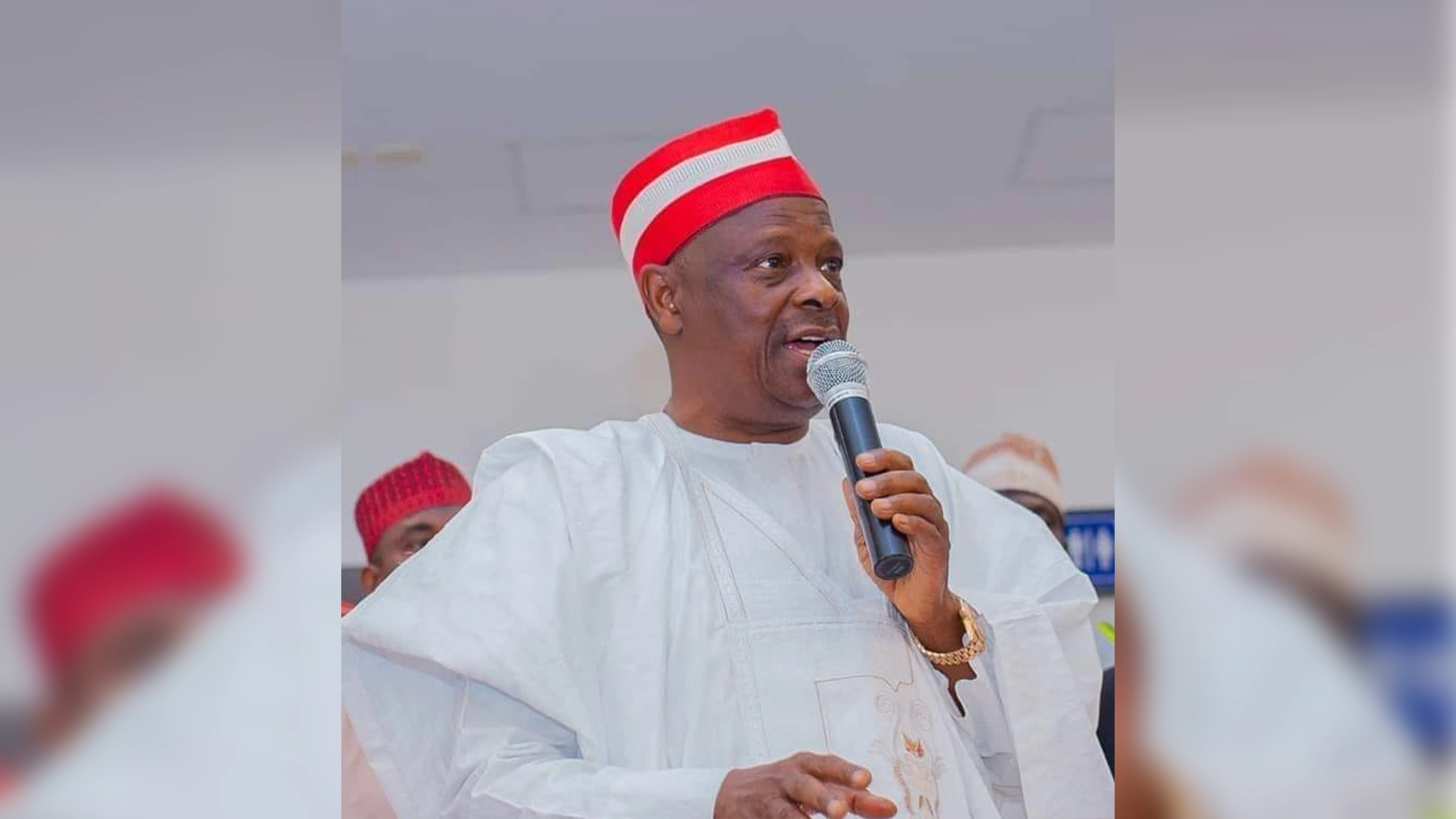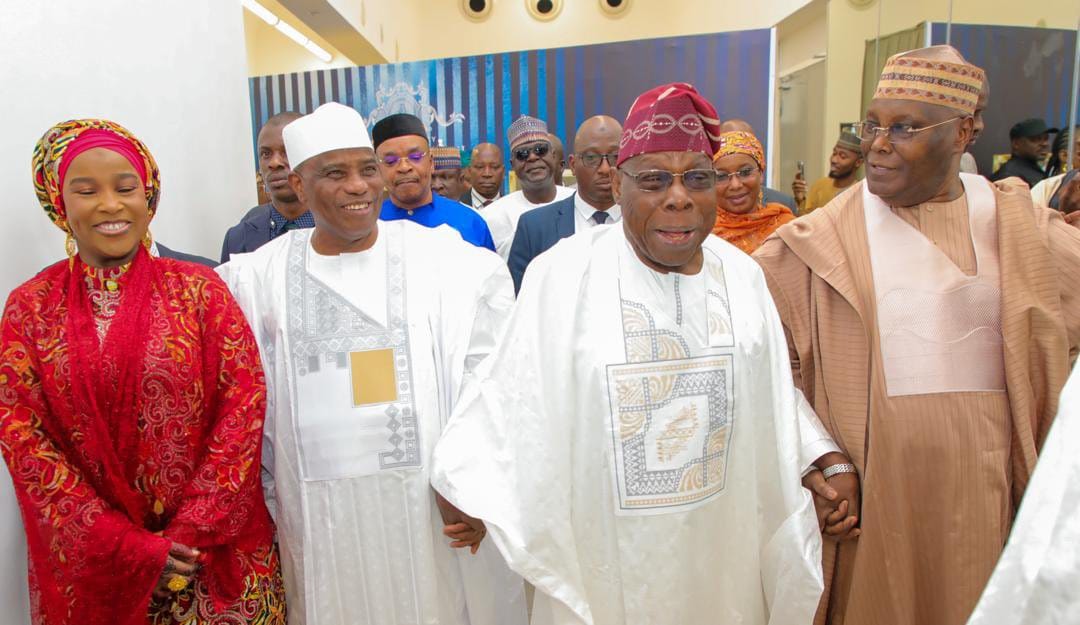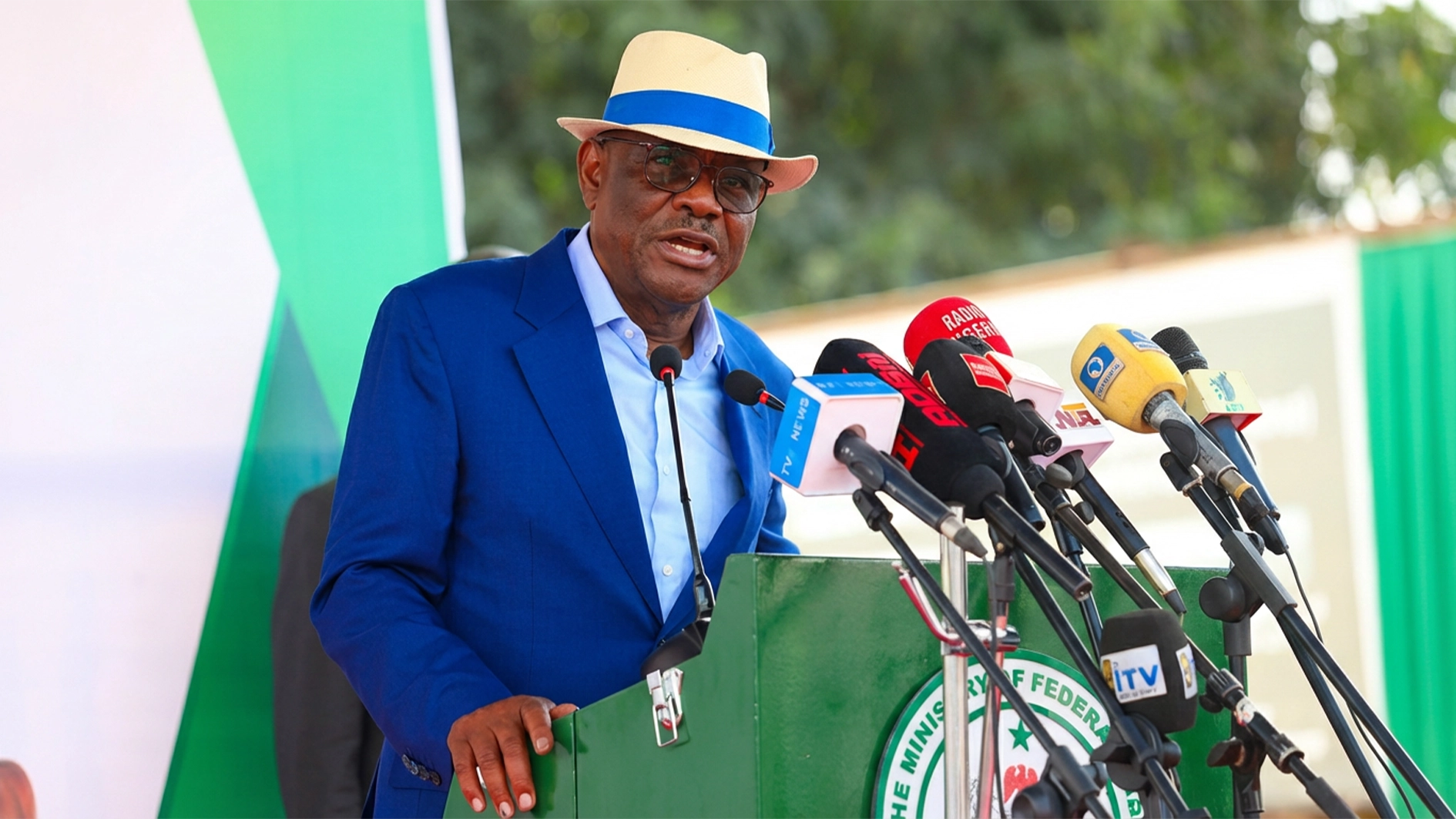
With an end to the political crisis between Rivers State Governor Siminalayi Fubara and his estranged godfather Wike and Minister of Federal Capital Territory (FCT) still not in sight, residents of the state are counting their losses and lamenting missed development opportunities. Exasperated by unfolding ugly developments amid dire uncertainty, OBINNA NWAOKU reports that many are asking when, and how peace will return to the oil-rich state.
On October 30, 2023, residents of Rivers State were abruptly awakened by a loud explosion that ripped through the State House of Assembly Complex, barely five months after Governor Siminlayi Fubara was inaugurated.
While the immediate cause of the explosion was unclear, some political actors in the state knew that the explosion signaled the beginning of a prolonged political battle between the governor and his erstwhile political godfather, Nyesom Wike, who is now the Minister of Federal Capital Territory (FCT).
Additionally, the incident tentatively confirmed rumours that were swirling after Fubara’s swearing-in in May 29, last year that he was on a collision course with his predecessor in office.
Even though Fubara is doing his best to fulfill his government’s obligation to the people, and prevent the feud from hindering the development of the state, the war of attrition has remained unresolved with some residents counting their losses and regretting missed opportunities.
After Wike picked Fubara (who served his government in different capacities) as his successor, he supported and worked for his victory at the poll. However, as the relationship between them deteriorated swiftly post-inauguration, the House of Assembly complex was demolished to prevent 27 of the 32 lawmakers from initiating impeachment proceedings against Fubara.
Not long before the lawmakers were evicted from their official residences on the pretext that the government intended to rehabilitate them.
Shortly after the lawmakers were evacuated, in December 2023, the 27 lawmakers who are loyal to Wike, who were originally elected on the platform of the Peoples Democratic Party (PDP) announced their defection to the All Progressives Congress (APC). The lawmakers who left for APC were those indicted in the move to impeach Fubara.
With their departure clearly drawing the battle line between the state’s helmsman and his predecessor in office, peace has eluded the state making governance unstable. Matters were not helped with nine commissioners who were loyal to Wike exiting Fubara’s cabinet.
They included Gift Worlu (housing); Chinedu Mmno (education); Ben-Golden Chioma (environment); Jacobson Nbina (transport); Inime Aguma (social welfare and rehabilitation); Zacchaeus Adangor (attorney general and commissioner for justice); Isaac Kamalu (finance); Dakorinama Kelly-George (works) and Chukwuemeka Woke.
Even though Fubara has replaced every Wike’s loyalist that left his government, stability and calm have continued to elude the state with the gamut of litigations pulsating in various courts of the land, and the high number of private and government-owned property lost.
While the government is posturing as if happenings within its confines are without dire economic disruptions that have led to loss of revenues, it should be worried about other distortions that have claimed property that would require huge costs to rebuild.
For instance, to rebuild the razed House of Assembly Complex, the state government would spend about N19.6 billion. Work has started on the edifice, even as both factions of the State Assembly have continued to sit in various places.
With the cost of rebuilding the assembly complex already established, those of the local council secretariats, which were torched during the protest against the conduct of the recent council election are yet to be determined.
Of immense worry also, is the 2024 budget of the state, which has remained contentious. Fubara proposed about N800.4 billion as the state’s fiscal expenditure, which he presented to the five loyal lawmakers for ratification and approval.
The issue of the budget made up of N361.6 billion for recurrent expenditure, and N410.3 billion for capital expenditure came to the fore recently as an Abuja Court of Appeal validated the membership of the 27 lawmakers loyal to Wike. The state government has challenged the declaration of the Court of Appeal at the Supreme Court.
The unabating political crisis has also affected some significant projects and slowed down the process of work in some areas.
For instance, the 9.2-kilometre Ekagho-Ogboloma-Adada Link Road in the Odual axis of Abua-Odual Council has been stalled, there is no progress on the road project so far.
Also, the N195.3bn Port Harcourt Ring road project awarded in July 2023 to Julius Berger Plc, which is expected to be completed in three years is moving at a very slow pace causing serious traffic gridlocks to road users. Many residents have expressed doubt that the project would be delivered within the stipulated time.
Notwithstanding the endless Rivers political crisis, the current administration under Fubara, has, however, made notable strides in initiating and completing new projects. Some of the key projects completed by Fubara included the Emohua Kalabari Road and the Ogoni-Opobo-Andoni Unity Road among others.
The Trans-Kalabari Ring Road, a legacy project, which was flagged off recently is also progressing and is expected to be completed in three years. The state government has, however, made notable strides in the completion of new projects such as the Emohua-Kalabari road; and the Ogoni-Opobo –Andoni Unity road among others. The Trans-Kalabari ring road, which is the governor’s legacy project, which was flagged off recently, is progressing.
The Abua-Emoh-Iyak-Ighom-Elok and Emoh-Egbolom Access Road, which began in January 2023 was commissioned on October 29, 2024.
Be that as it may, the political crisis has discouraged both foreign and local investors from the state while those who have already invested in the state are spending a lot of their revenue to protect their investment.
A report by the National Bureau of Statistics (NBS), titled “Nigeria Capital Importation Q1 2024,” disclosed that Lagos State accounted for 82 per cent of the total foreign capital inflow into Nigeria with $2.78 billion. The FCT followed with $593.58m, and Ekiti State recorded $12,750, but a state as strategic as Rivers attracted zero percent in Q1 of 2024.
Again from June 2023 to June 2024, Rivers State has attracted only $6.00m Foreign Direct Investment (FD1) as compared to $25m recorded by Ogun; $33.92m attracted by Akwa Ibom State, $150.09m recorded by Abia, $2.59b by the FCT, and $5.95b by Lagos State.
Reviewing the political turmoil and its effects on the state, a chieftain of APC in the state, Darlington Nwauju, stated that the fracas have downplayed the investment portfolios of the state.
Nwauju, who regretted that the greatest losers in the endless political tango are the citizens who should be enjoying democracy dividends, argued that the local economy has allegedly stagnated, adding that the N800.4 billion budget for the year, though ambitious, faces significant setbacks due to political tensions.
He added that government policies regulating small businesses, which account for over 50 percent of economic activities in the state have become unpredictable and unresponsive to the yearnings of the people.
Also, a public affairs analyst, Kinsley Eme, argued that the governor would have done much better than he is doing if not for the crisis. He stated that a more stable polity could have given him leverage over others before him, especially coming from the previous administration.
“No matter what anybody thinks, there is nothing to compare with peace. It is not only those counting their losses that are victims of the crisis, those who have benefited are also not free because they have relations here and there,” he stated.
For the leader of the Future Nigeria Movement (FNM), Livingstone Wechie, but for the crisis, the state would make progress with all hands on deck. He stressed: “By now, we should have visa-issuing centers in Rivers State because there is nothing like that in the entire South-South and South-East. Whereas Rivers State is the headquarters of oil and gas, which is the mainstay of Nigeria’s economy. Why can’t we boast a visa-issuing office, embassy, or consulate office in Rivers State that plays host to oil multinationals, and where expatriates flock in in very high numbers after Lagos and Abuja?
“When investors fly into Nigeria, they first make a stop in Lagos or Abuja. Afterward, they ask questions about the best investment destination between Lagos and Port Harcourt. Sadly, when they tune into the news, the things that they hear are political implosions coming from Rivers State. That alone discourages investment plans,” he stated.
He stated that for the first time, a governor is now under scrutiny from his political adversary, ensuring that he remains proactive and accountable, adding that Wike is also under increased political watch, mindful of being questioned due to his past actions in the state.
But despite the gloomy climate, the Rivers State Commissioner of Information and Communication, Joseph Johnson is downplaying the impacts of the political crisis on the state, attributing the tensions to the commercial interests of a cartel seeking to maintain control over the state’s finances, thereby resisting the change in administration.
He, however, insisted that the state is “up and running,” with various projects underway, including social and road infrastructure development; scholarships for students; school remodeling and upgrading, agro-industry development; prompt salary payments, promotions for civil servants, which stalled for 10 years; appointment of permanent secretaries; recruitment in the education and health sectors, as well as implementation of the national minimum wage.
He emphasised that challenges exist in every state, adding that progress requires striking a balance and moving forward, denying claims that investors are shying away from investing in the state.
“You cannot say that you are not going on a pilgrimage to Israel because there is a war going on in Israel. People go on pilgrimage even when there is a war between Israel and its neighbors. So, there is no state where there are no challenges,” he stated.
Johnson reassured investors that the current turmoil in the legislative arm has not affected the performance of the executive, stressing that the governor remains focused, and the executive and judiciary arms are crisis-free.
He emphasised that crises are common everywhere, but Rivers State has unique advantages because as the nation’s gas hub, it remains an attractive destination for investors.
Johnson warned against attempts to withhold funds from local governments, which he likened to “seizing blood to the brain,” stressing that such actions could lead to a revolt and unforeseen consequences.






